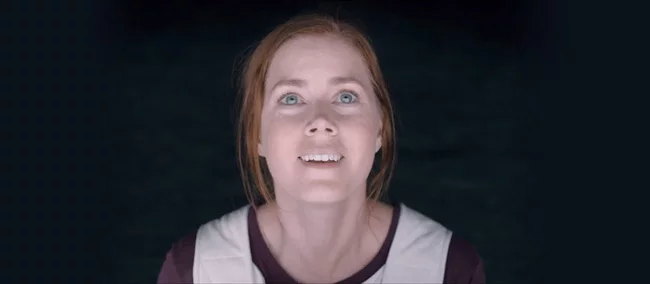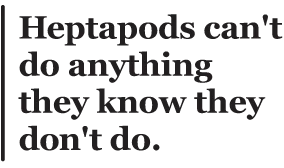
Spoilers for Arrival follow.
I’m baffled by ‘Arrival.‘ I overheard a theatergoer that exited after me say “I don’t get it,” a sentiment shared by my father who accompanied me. I remember what it was like to not be the science fiction aficionado I am now and empathize. I get not getting it, but I get it. That’s not why I’m baffled. If I may be so bold, I get it more than the majority critical response patting their collective backs by praising a “cerebral” film. The subtext being that they possess intellect by liking an intellectual work of art.
Then they go on to commend the emotional weight of the choice to have a child that is known to die young.
Let me refresh. Aliens (“Heptapods”) come to Earth to give humans knowledge that they need in order to help said aliens 3,000 years in the future. How do the Heptapods know they’ll require assistance in the future? Because they can see the future, that’s how. The knowledge they give the humans is their language, which doubles as a rewiring of the brain so that time, past and future, becomes a perceivable dimension. Amy Adam’s character Louise is the first to understand this and gain foresight. This is a far-fetched story, but not that unusual when it comes to sci-fi. I suspend my disbelief. I also see the consequence of the known future.
 There’s a scene in which paranoid soldiers try to covertly bomb the aliens. Louise and her partner, Jeremy Renner’s Ian Donnelly, narrowly escape the explosion when the aliens eject them from the bomb site. At this point in the movie, audiences could reasonably ask “how did the aliens know the bomb was there?” We discover that they knew the bomb was there because they had foreknowledge of the event. Okay, then why not eject the bomb much sooner? There’s no reason to cut things close. The answer: the Hetapods had foreknowledge of the bomb and foreknowledge of their own future actions. Hetapods can’t do anything they know they don’t do.
There’s a scene in which paranoid soldiers try to covertly bomb the aliens. Louise and her partner, Jeremy Renner’s Ian Donnelly, narrowly escape the explosion when the aliens eject them from the bomb site. At this point in the movie, audiences could reasonably ask “how did the aliens know the bomb was there?” We discover that they knew the bomb was there because they had foreknowledge of the event. Okay, then why not eject the bomb much sooner? There’s no reason to cut things close. The answer: the Hetapods had foreknowledge of the bomb and foreknowledge of their own future actions. Hetapods can’t do anything they know they don’t do.
This is a profound realization. Free will can be a hard to define concept, but if it involves the ability to choose between two or more alternatives, then there is no free will in the world depicted in ‘Arrival.’ The Heptapod sees that it is predestined to eject Ian and Louise at a very specific time. Either it must follow through on that knowledge or it was never knowledge in the first place. If the vision of the future can be defined then the vision is only a fallible prediction. Downgrading Arrival’s view of time to a guess undermines the entire plot.
Louise had a child, but Louise did not choose to have a child. Characters with foreknowledge act out their roles without an ability to choose. In fact, characters without foreknowledge also act out roles–the only difference is that they are ignorant of the fact that they can’t make choices.
The future being knowable makes choice impossible. Precognition proves that the future is knowable. This is true for us as much as it is for Louise. I avoid an crisis of self secure in the fact that we can’t know if our future is knowable or not, at least until the TV soothsayer efficacy rate goes way up.
